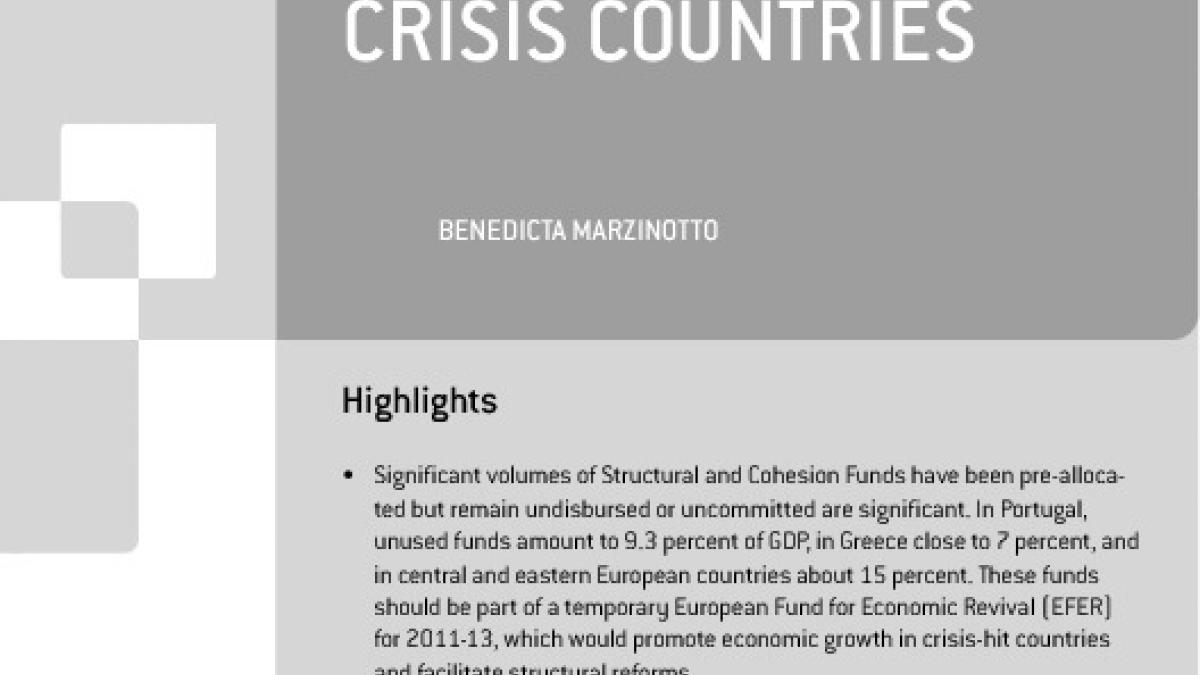A European fund for economic revival in crisis countries

Significant volumes of Structural and Cohesion Funds have been pre-allocated but remain undisbursed or uncommitted. In Portugal, unused funds amount to 9.3 percent of GDP, in Greece close to 7 percent, and in central and eastern European countries about 15 percent. These funds should be part of a temporary European Fund for Economic Revival (EFER) for 2011-13, which would promote economic growth in crisis-hit countries and facilitate structural reforms.
For countries under financial assistance in particular, the European Commission has a role to play in identifying the ‘right’ objectives for which the funds should be used. The Commission could decide to manage the funds directly with the support of an executive agency.
Greater efforts should be made to exploit synergies between EU grants and European Investment Bank loans, allowing EIB loans to finance the total costs of a project or programme in small countries, and leveraging the whole EU budget to attract private investment.